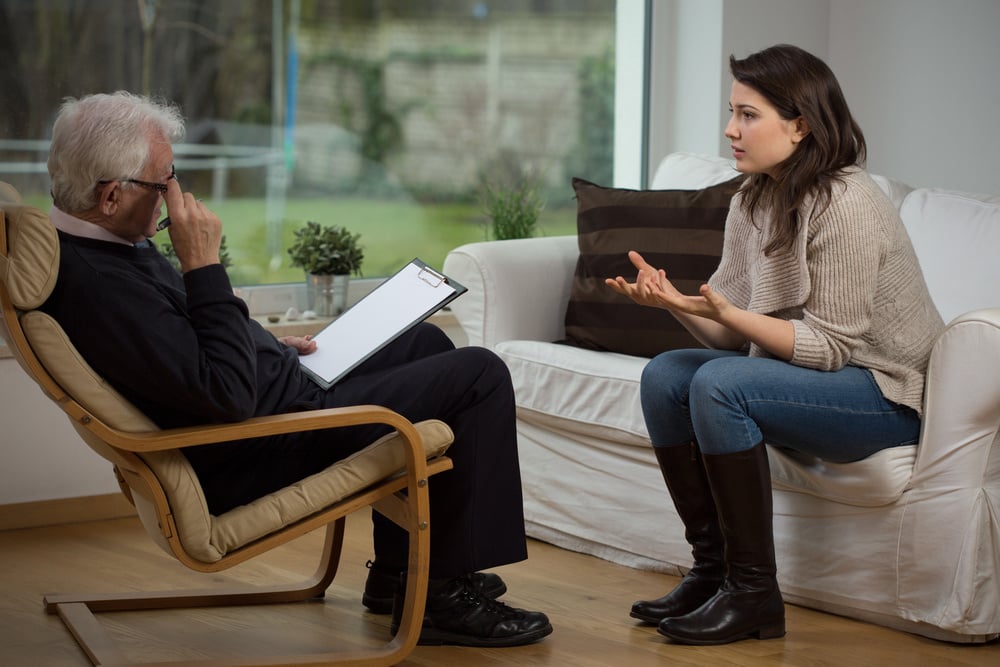Those who have visited a mental health counselor understand the profound impact that a counselor has on individual lives and communities at large. Counselors work with their clients to boost self-esteem, promote changes in behavior, and improve mental well-being. This kind of guidance can be transformative and renewing for clients and the surrounding community.
If you’re passionate about helping people find psychological and emotional healing, pursuing a career in mental health counseling might be right for you. Here are the steps and requirements to becoming a mental health counselor.
Understanding the Role of a Mental Health Counselor
Licensed mental health counselors support people on a journey towards emotional and psychological wellness. After consulting with their client and reaching a diagnosis, counselors can walk with them to develop an appropriate treatment plan.
Professional mental health counselors serve a diverse population and provide mental health care for various issues. From helping those with mental illness to addressing problems of addiction or trauma, licensed counselors are equipped to address and treat people right where they are, leading to stronger relationships, careers, and personal fulfillment.
Many counselors possess specialized expertise in a certain kind of counseling. Specializations allow for a more focused skill set and better overall effectiveness in treating disorders.
Mental Health Counselor Jobs
Aspiring mental health counselors can pursue a variety of specialties within the field. Addiction, family counseling, and trauma are three common paths for mental health counselors to take. Counseling can take a variety of forms as well, including individual counseling, family counseling, couples counseling, and group counseling.
Licensed mental health counselors can find employment in various work settings beyond a private practice, depending on their strengths and career goals. Hospitals, schools, and nursing homes hire full-time counselors to treat clients, and community agencies are always looking for licensed professionals to uniquely impact the community.
The Path to Becoming a Licensed Mental Health Counselor
Building your career in mental health counseling starts with a few key steps. Most mental health counselors earn an undergraduate degree in psychology, sociology, or other related behavioral science programs. From there, students can acquire a master’s degree in counseling psychology or a related field.
A master’s degree serves as the educational foundation for mental health practitioners. During a graduate program in counseling, students learn valuable concepts and dive deep into the science behind mental health and psychological wellness. Students also participate in real-world counseling experiences under the guidance of seasoned professionals. These required supervised clinical training hours equip every student with the right experience to enter the field.
Once a student has earned their master’s degree and completed their clinical hours, they can move on to licensing exams to become a Licensed Professional Health Counselor (LPHC) or a Licensed Mental Health Counselor (LMHC). Licensure requirements vary depending on the state you wish to practice in, but most states will require you to take the National Clinical Mental Health Counseling Exam (NCMHCE) or the National Counselor Examination for Licensure and Certification (NCE).
Gain Core Competencies and Skills Towards Success: MA in Counseling Psychology
Bastyr's MA in Counseling Psychology is an exemplary mental health counseling program, accredited by the Masters in Psychology and Counseling Accreditation Council (MPCAC) with a comprehensive and rigorous curriculum.
Bastyr's MA in Counseling Psychology equips students with the knowledge and practical training needed to achieve counselor licensure and succeed in a licensed mental health counselor career. The program takes a holistic approach to mental health and well-being, encouraging a full-spectrum view of patient care, and students have the opportunity to work hands-on with real clients at the Bastyr clinic within their first year.
Developing Valuable Counseling Skills at Bastyr University
A wide number of skills go into becoming an effective mental health counselor and constructing valuable counseling relationships. Developing effective communication skills fosters clear and empathetic dialogue with clients, and building strong counseling relationships and rapport provides successful outcomes.
Counselors also need to be skilled in assessing clients and understanding the complexities of their situations to tailor personalized care. Treatment planning relies on theoretical knowledge, ensuring that counselors are well-prepared to manage diverse client needs.
Next Steps for Aspiring Mental Health Counselors
Counseling can create a rewarding experience for both the client and the licensed counselor. Bastyr’s MA in Counseling Psychology sets up future counselors with the experience and knowledge they need to transform individuals and communities.
If you’re looking for more actionable steps to becoming a mental health counselor, our Counseling Psych eBook explains the field of counseling psychology, why your MA in Counseling Psychology could transform your future, and how to begin your education at Bastyr.


